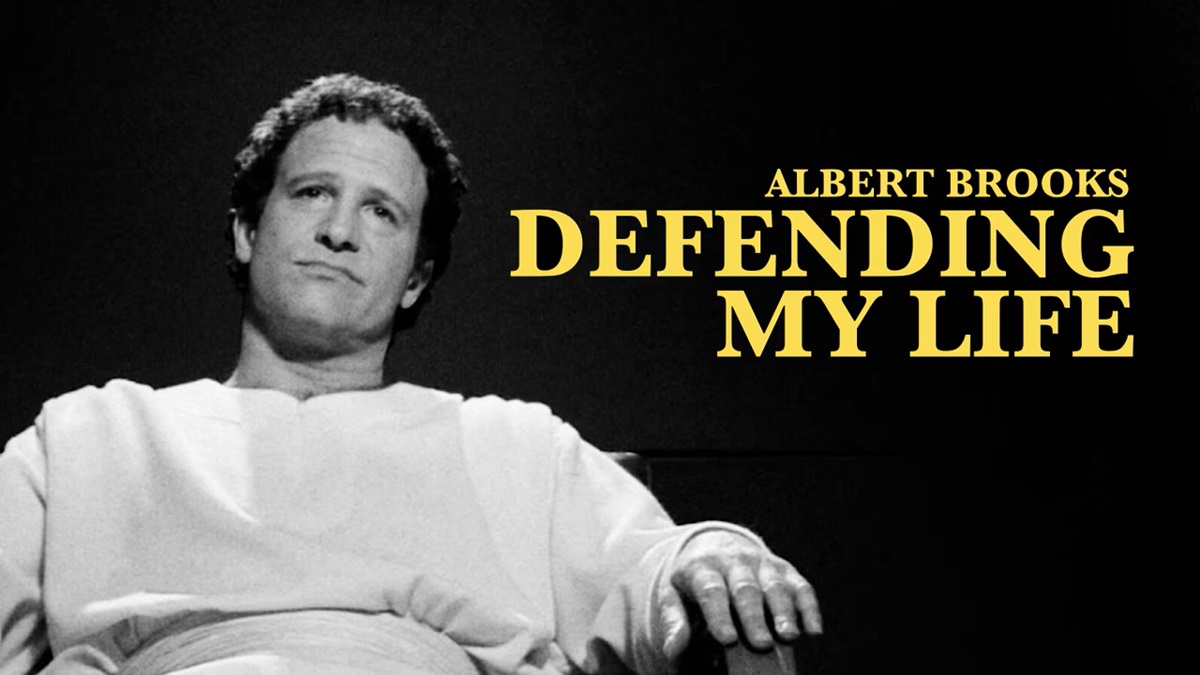From stand-up comedy to the silver screen, Albert Brooks has entertained audiences for decades with his unique blend of humor and wit. With a career spanning over 40 years, he has become a household name and a respected figure in the entertainment industry. In this article, we will take a closer look at the life and work of Albert Brooks, from his early beginnings to his rise to fame and beyond.
Early Life and Career Beginnings

Born on July 22, 1947, in Los Angeles, California, Albert Brooks (born Albert Lawrence Einstein) was destined for a career in show business. His father, Harry Einstein, was a well-known radio comedian and actor, while his mother, Thelma Leeds, was a singer. Growing up in a family of entertainers, it was no surprise that Brooks would follow in their footsteps.
Brooks attended Beverly Hills High School, where he first discovered his talent for comedy. He performed stand-up routines at local clubs and even had a brief stint as a disc jockey at a radio station. After high school, he briefly attended Carnegie Mellon University but dropped out to pursue a career in comedy.
The Early Years of Stand-Up Comedy
In the early 1970s, Brooks began his career as a stand-up comedian, performing at various clubs in Los Angeles and New York. He quickly gained recognition for his sharp wit and observational humor, which often poked fun at everyday situations and societal norms.
Brooks’ breakthrough came when he appeared on The Tonight Show Starring Johnny Carson in 1973. His performance caught the attention of legendary comedian and filmmaker, Mel Brooks (no relation), who became his mentor and helped him kickstart his career in Hollywood.
First Television Appearances
Brooks’ success on The Tonight Show led to more television appearances, including a recurring role on The Merv Griffin Show and Saturday Night Live. He also appeared in several variety shows and comedy specials, solidifying his reputation as a rising star in the world of comedy.
Film Debut and Early Roles
In 1976, Brooks made his film debut in Martin Scorsese’s cult classic, Taxi Driver. He played a passenger who has a disturbing conversation with the film’s protagonist, Travis Bickle (played by Robert De Niro). Despite his limited screen time, Brooks’ performance was praised by critics and audiences alike, earning him a nomination for an Academy Award for Best Supporting Actor.
Rise to Fame in Hollywood
After his success in Taxi Driver, Brooks continued to make a name for himself in Hollywood, both as an actor and a filmmaker. He appeared in several supporting roles in films such as Out of Sight (1998), Finding Nemo (2003), and This Is 40 (2012). However, it was his work as a writer and director that truly cemented his place in the industry.
Writing and Directing Career
Brooks’ first foray into writing and directing came with his mockumentary film, Real Life (1979). The film received critical acclaim and showcased Brooks’ unique brand of humor, which often challenged societal norms and conventions. He followed up with Lost in America (1985), a satirical comedy about a couple who drop out of society to pursue their dreams, only to find themselves in a series of hilarious misadventures.
Critical Success with Broadcast News
In 1987, Brooks wrote, directed, and starred in Broadcast News, a romantic comedy-drama set in the world of broadcast journalism. The film was a critical and commercial success, earning multiple Academy Award nominations, including Best Original Screenplay for Brooks.
Exploring the Afterlife in Defending Your Life
In 1991, Brooks wrote, directed, and starred in the fantasy comedy-drama, Defending Your Life. The film follows a man (played by Brooks) who must defend his life’s decisions in the afterlife before he can move on to the next phase. Once again, Brooks’ wit and humor shined through in this thought-provoking and entertaining film.
Collaboration with Hollywood Legends
Throughout his career, Brooks has had the opportunity to work with some of Hollywood’s most iconic figures, including Meryl Streep, Debbie Reynolds, and Goldie Hawn. His films have also featured cameos from legendary comedians such as Robin Williams and Amy Schumer, showcasing his influence and respect in the industry.
Continued Success and Legacy

As he nears his 75th birthday, Albert Brooks shows no signs of slowing down. In recent years, he has continued to appear in films and television shows, including the critical and commercial success, A Most Violent Year (2014) and the Emmy-nominated series, The Kominsky Method (2018-2020). He has also released several books, including his memoir, 2030: The Real Story of What Happens to America (2011).
Honors and Awards
Throughout his career, Brooks has received numerous accolades for his work, including an Academy Award nomination, five Golden Globe nominations, and a star on the Hollywood Walk of Fame. In 2019, he was honored with the National Medal of Arts by the President of the United States, recognizing his contributions to the arts and entertainment industry.
From his early beginnings as a stand-up comedian to his rise to fame in Hollywood, Albert Brooks has become a beloved figure in the world of entertainment. With his sharp wit, unique perspective, and undeniable talent, he has left a lasting legacy in the industry and continues to inspire future generations of comedians and filmmakers. Whether he’s making us laugh or making us think, Albert Brooks is a true master of his craft.
Filmography
Famous School for Comedians (1971/1972)
- Year: 1971/1972
- Genre: Comedy
Real Life (1979)
- Year: 1979
- Genre: Comedy, Mockumentary
- Plot: “Real Life” is a satirical comedy that follows a filmmaker who decides to document the lives of an average American family, but his presence disrupts their normal routine, leading to chaos and unexpected consequences.
- Reception: The film received positive reviews for its innovative approach to satire and mockumentary style, showcasing Brooks’s talent for blending humor with social commentary.
Modern Romance (1981)
- Year: 1981
- Genre: Romantic Comedy
- Plot: The film revolves around the tumultuous relationship between a film editor, played by Albert Brooks, and his girlfriend. As they break up and reconcile repeatedly, the story explores the complexities of modern relationships and the challenges of commitment.
- Reception: “Modern Romance” was well-received for its realistic portrayal of romantic dynamics and Brooks’s comedic performance, earning praise for its insightful take on love and human behavior.
Lost in America (1985)
- Year: 1985
- Genre: Comedy, Drama
- Plot: A couple, played by Albert Brooks and Julie Hagerty, decide to drop out of their successful but unsatisfying careers and embark on a journey across America in a Winnebago, seeking a more fulfilling and liberated lifestyle. However, their idealistic plans face numerous challenges and setbacks along the way.
- Reception: The film garnered positive reviews for its humorous yet poignant exploration of midlife crises and societal expectations, with particular acclaim for Brooks’s writing and performance.
Defending Your Life (1991)
- Year: 1991
- Genre: Comedy, Fantasy
- Plot: After dying in a car accident, the protagonist, played by Albert Brooks, finds himself in the afterlife, where he must defend his life choices in a heavenly court. During this process, he falls in love with another soul, portrayed by Meryl Streep, as he reflects on the moments that defined his existence.
- Reception: “Defending Your Life” was praised for its imaginative premise, witty humor, and heartfelt exploration of human fears and aspirations, earning recognition for its originality and philosophical themes.
Mother (1996)
- Year: 1996
- Genre: Comedy, Drama
- Plot: In this film, Albert Brooks portrays a middle-aged writer who moves back in with his mother, hoping to uncover the root of his personal issues and gain a better understanding of his past. Through their interactions, he confronts unresolved emotions and experiences pivotal moments of self-discovery.
- Reception: “Mother” received favorable reviews for its touching portrayal of familial relationships, blending humor with emotional depth, and showcasing Brooks’s versatility as both a writer and actor.
The Muse (1999)
- Year: 1999
- Genre: Comedy
- Plot: A down-and-out screenwriter, played by Albert Brooks, seeks inspiration from a mysterious woman claiming to be a muse. As he becomes increasingly dependent on her guidance, his professional and personal life takes unexpected turns, leading to comedic and introspective situations.
- Reception: The film was met with mixed reviews, with praise for its clever premise and performances, but some criticism for its pacing and execution, resulting in a somewhat polarized reception.
Looking for Comedy in the Muslim World (2005)
- Year: 2005
- Genre: Comedy, Satire
- Plot: Sent by the U.S. government to India and Pakistan, Albert Brooks’s character is tasked with understanding what makes Muslims laugh, in an attempt to bridge cultural gaps through humor. His misadventures and encounters with locals lead to comical and thought-provoking situations.
- Reception: The film received mixed reviews, with some praising its bold approach to cultural commentary and humor, while others found fault in its execution and handling of sensitive subject matter.



